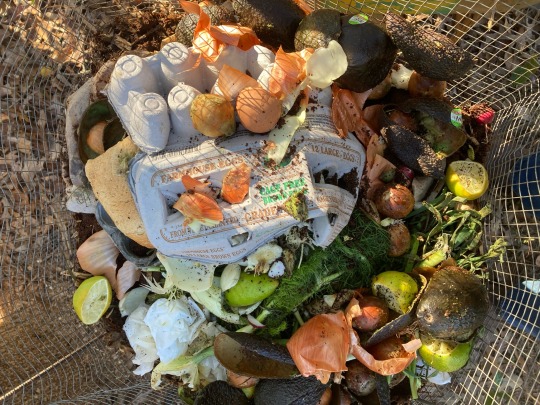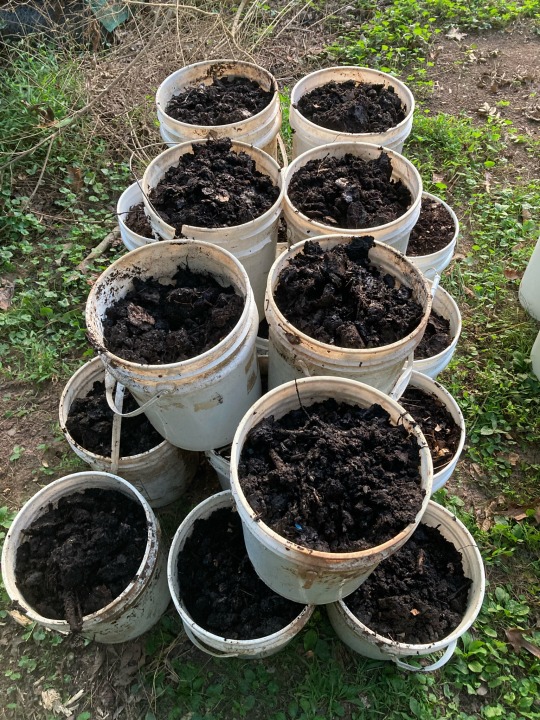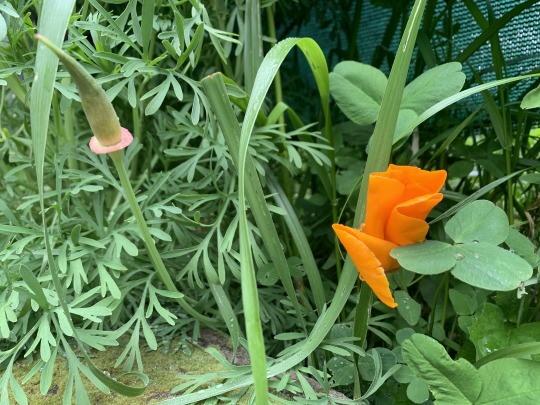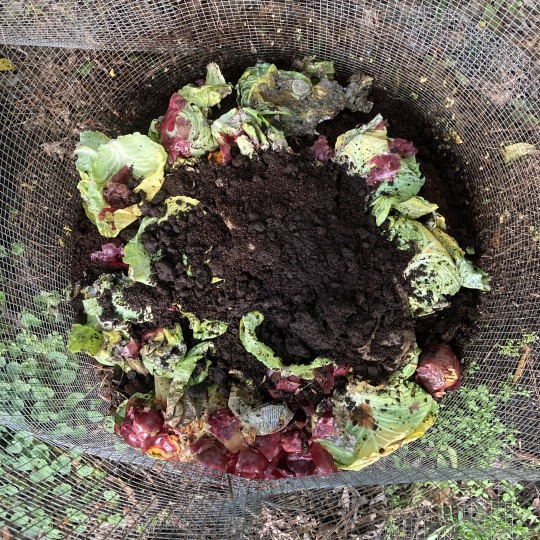#food sovereignty
Text
Gather is an intimate portrait of the growing movement amongst Native Americans to reclaim their spiritual, political and cultural identities through food sovereignty, while battling the trauma of centuries of genocide.
Gather follows Nephi Craig, a chef from the White Mountain Apache Nation (Arizona), opening an indigenous café as a nutritional recovery clinic; Elsie Dubray, a young scientist from the Cheyenne River Sioux Nation (South Dakota), conducting landmark studies on bison; and the Ancestral Guard, a group of environmental activists from the Yurok Nation (Northern California), trying to save the Klamath river.
Please share!!

#please share#indigenous lives matter#indigenous#food sovereignty#activism#food#environmental justice#share share share#share#indigenous activism#nativeamericans#native plants#native women#repost this#film#documentary#films to watch#netflix#streaming now#thank you to the Allied Media Group in Detroit for hosting a screening#blaze it
209 notes
·
View notes
Text
The UN’s Food and Agriculture Organization coined CSA in 2009 to describe practices aimed at increasing farm resilience and reducing the carbon footprint of a global food system responsible for up to 37 percent of annual greenhouse gas emissions. Since then, however, observers say that CSA has been usurped by the Gates-led corporate alliance, with programs like Water Efficient Maize for Africa serving as green-painted Trojan horses for industry.
“CSA is an agribusiness-led vision of surveillance [and] data-driven farmerless farming, [which explains why] its biggest promoters include Bayer, McDonnell, and Walmart,” said Mariam Mayet of the African Centre for Biodiversity. “From a climate perspective, it entrenches the global inequalities of a corporate food regime. There’s no system shift at all.”
Octavaio Sánchez, the grizzled director of Honduras’s National Association for the Promotion of Organic Agriculture, contends that policies that promote true resilience must focus on regenerating soils through the use of organic fertilizers, crop rotation, and the preservation of native seeds able to adapt to changing conditions. These are the cornerstones of a global agro-ecology movement that has emerged from the seed and food sovereignty coalitions of the past three decades.
The peasant-led agro-ecology movement—with La Via Campesina and AFSA in front—rejects the familiar refrain from agribusiness promoters that it is condemning farmers to permanent poverty and stagnation. The movement’s position is supported by both a growing literature of case studies and the development of scientific agro-ecological practices. When Gates Foundation officers were preparing to launch AGRA in 2006, researchers at the University of Essex published a study showing that agro-ecological practices increased yields by an average of nearly 80 percent across 12.6 million farms in 57 poor countries. The authors concluded that “all crops showed water use efficiency gains,” which led to “improvements in food productivity.” The UN’s High Level Panel of Experts on Food Security and Nutrition recommended in 2019 that governments support agro-ecological projects and redirect “subsidies and incentives that at present benefit unsustainable practices,” a judgment based on similar studies undertaken around the world.
88 notes
·
View notes
Text

About the Campaign
The Aim:
We are seeking 30 acres of land with healthy soil, ideally with a previous history of agricultural use. The land should be within 20 miles of Denver, CO and grant us both water and mineral rights. The land should be valued equally to all members of the ecosystem that occupy it. We intend to use this land to grow food for our communities throughout Denver and as a place of education and healing. The land would be owned by the organization, FrontLine Farming, but would also be open to collective use in our BIPOC community.
Now is the Time:
Black, Brown and Indigenous Farmers across the United States have been systemically excluded from access to land whether through outright intimidation and theft, loan discrimination or laws such as Heirs Property Rights. Land in the United States was stolen from Indigenous Communities and while BIPOC communities represent a quarter of the US population, they own less than 5% of farmland and cultivate on less than 1% of the land. Yet those who have historically cultivated the land and comprise the over 2.4 million farmworkers in the United States are people of color from diverse communities and foodways. They are descendants of Africans brought here, immigrants, refugees and people who have continuously brought their agricultural knowledge and skills to feed nations.
We have used our radical imaginations for our vision of coming back to the land and are ready to bring this vision to life. To acquire our own soil and land will fortify our efforts to honor our ancestors, to educate our community, to generate independent economic systems, to manifest equitable policies and systems change, to lead by example, to understand history and to create our future. It is a way to co-create generational wealth for our communities, and more importantly, shared power.
Acquiring the land that we envision requires moving money and resources. We are seeking support from philanthropy, local and national networks, and donors. The funds raised from this project will aid our vision and goal.
Frontline Farming
We are a BIPOC-led farmer advocacy and food justice organization that strives to create greater equity across our food system on the Front Range of Colorado. We support and create greater leadership and access for Black, Indigenous, People of Color and Womxn in our food systems. We achieve these goals through growing food, listening, educating, honoring land and ancestors, generating policy initiatives and engaging in direct action.
In 2021, we distributed 26,000 lbs of farmed produce through various programs such as our CSA, Healing Foods and SNAP/WIC recipients. We also advocate for farmers and farm workers alike to ensure that the people who grow our country’s food have access to basic rights and protections that are already afforded to other workers in the state.
#bipoc#farming#indigenous#agriculture#food sovereignty#land back#native american#environmentalism#science#environment#nature#colorado#denver#usa
76 notes
·
View notes
Text
Growing food is a relationship. Part of that relationship is compost.

#compost#food systems#atlanta urban ag#food access#soil food web#soil health#food sovereignty#community composting systems#raised beds#vermicomposting#visionary growing solutions#maurice small
53 notes
·
View notes
Text
This photo is of 1/10th of the compost dug up for our garlic beds this winter.

#compost#food access#atlanta urban ag#garlic beds#winter prep#bed preparation#food systems#soil health#food sovereignty#seed saving#garlic
37 notes
·
View notes
Text
I would really like somehow someway to put my education in agriculture towards a social movement -- in food sovereignty and sustainable systems, and things like that. But honestly I have no clue how to do so. Where I am agriculture is very dominated by more privileged white farmers that can afford technological and chemical solutions to problems, and so conventional ag is the dominant system. Everything I've read thus far makes it sound like the only way to influence that group of people is to establish a farm myself and have them come around eventually by proving I'm not insane (and proving that I make a profit), which would require personal capital that I simply don't have and couldn't get for years (if even, in this economy). There is a city nearby but it doesn't have an urban agriculture movement like a lot of major cities do, as far as I'm aware at least.
Idk, I've been spending a lot of time frustrated at the existing possibilities of what I can do where I am with my degree, that maybe I haven't been thinking and learning outside the box enough. I think I'm going to move towards learning more about grassroots movements and organizations and being a good community member. I feel that might reveal a door I can't see right now.
#rambling#if anyone has resources on community building and grassroots movements i would love u so much#but I'm going to look around myself as well#agriculture#agroecology#food sovereignty#it doesn't help that I'm an introvert but I'm determined to wedge myself in somewhere
23 notes
·
View notes
Text

Thanks for joining Urban Soul Farmer. It’s been a pleasure !!
-Zoe
#urbansoulfarmer#zoeblaq#urban gardening in los angeles#growfood#workshop#containergardening#herbs#desert ranch#restoration#food justice#food sovereignty
26 notes
·
View notes
Text
#good news#nature#science#environmentalism#environment#black farmers#black growing traditions#food#food sovereignty
25 notes
·
View notes
Text

🇨🇳
CHINA'S NEW FOOD SECURITY LAW IS A MOVE IN THE RIGHT DIRECTION, EVEN AS THE U.S. HANDS OVER ITS OWN AGRICULTURAL SOVEREIGNTY TO CORPORATIONS
China's National legislature passed a new food security Law Friday, aimed at securing its national food supply and reducing waste in food production in a country that feeds more than 1.4 billion people with less than 9% of the world's arable land.
At the very time when the United States is handing over it's agricultural sovereignty to giant multi-national corporations (including ones from China), China is moving in the opposite direction, looking to secure food supplies and exercise public ownership of agricultural lands.
China's Xinhua News Agency writes that the new food security Law stipulates that China must "'ensure absolute security in staple foods and basic self-sufficiency in grains,' indicating that the country must ensure that its food supply remains firmly in its own hands."
The new Law was passed by China's legislature at a session of the National People's Congress (NPC) Standing Committee on Friday, with the law taking effect on June 1st, 2024.
According to Xinhua, the law further stipulates that the "state shall restrict the occupation of farmland and the conversion of farmland to other forms of land use, such as forests and grassland."
The Law also emphasizes the establishment of a National agricultural germplasm resource bank, improvement of the national system for cultivating superior crop varieties, as well as promoting mechanization and building capacity for disaster prevention, mitigation and relief in grain production.
The Law also introduces measures to raise the income of farmers who grow crops.
According to Xinhua, China has produced a grain harvest of over 650 million tons for nine consecutive years, with a staple-food self-sufficiency rate above 100% and a grain-sufficiency rate above 95%.
The Law also contains a chapter dedicated specifically to food conservation, and creates enforcement mechanisms to reduce food waste from production to consumption.
Provisions also cover issues such as those concerning grain reserves, distribution, processing, and emergency response.
Xinhua says the new legislation on food security is "of great importance", and "lays a solid legal foundation for advancing China's system and capacity for food security governance, said Wang Zhimin, a member of the NPC Standing Committee."
#source
@WorkerSolidarityNews
#food sovereignty#agriculture#agricultural sovereignty#united states#analysis#political analysis#china#china news#us news#us agriculture#china agriculture#chinese food security#food security#us food security#politics#news#geopolitics#world news#global news#international news#breaking news#current events#political opinion#agriculture news#agricultural news#global agriculture#grain production#china grain production#us corporatism#corporatism
19 notes
·
View notes
Text
“My outlook changed during the pandemic, but the fire was the last straw for me … I don’t want to serve tourists any more. This isn’t what our ancestors would want,” said Keo, 40, who recently resigned from the hotel after 16 years to work at a composting company. “I want to be a better steward for my people and Āina. I want to show my kids that there’s an alternative to the corporate tourism we’ve been under for so long, and food is a big part of that.” ...
Maui Hub is part of a broader Indigenous-led land back movement to construct a circular food economy to boost food sovereignty, climate resilience, soil health and public health, while reducing Maui’s unsustainable overdependence on tourism – which is driving the housing crisis and exacerbating water shortages.
In some cases, community-led efforts since the fire have encompassed the broader thinking on the future role of food and agriculture in building back West Maui, while generating critical debate about the status quo. ...
Charles Dapitan, 37, has been volunteering and sleeping at the Nāpili hub since the fire, having given up his small apartment for a displaced family. “Tourism is all we’ve ever known, but now I know that my community needs me more than the tourists do. When I sit back and think about what we’ve achieved since that first tent six months ago, it’s crazy, and we can do more.”
7 notes
·
View notes
Text

Went Morel harvesting today! They like fresh burned area so we hiked across a pretty sketchy burn from last year. I fell in a hole but it was totally worth it.
223 notes
·
View notes
Text
today's Fifth Acre work: sheet mulching!
I have decided to sheet mulch as well as sieve the stones and broken glass, rusty nails, and general trash from the top soil before I start compost application and soil amendment. The rest of the weeds (filaree, ugh) can be pulled with about six hours of work, and then I'll have two plots. Terrace West will be a three sisters based garden with some others like chard, kale, eggplant, tomatoes, and peppers. Terrace Center will have sunflowers, cucumbers, cantaloupe, and nightshades. Terrace East is already planted with potatoes and alliums, and Terrace Top has some potatoes, thornless blackberries, and a raspberry that decided it ain'tn't dead yet.


Image description: two images, both of a garden sheet mulched with cardboard on an overcast day. The left shows a long view of an 800 sqft area sheet mulched, and clover and filaree in foreground unmulched. Right shows two raised beds, overrun with filaree, with sheet mulching around the left side and trampled filaree on the right.
I found some volunteers while working: a pansy by the compost over in Terrace East, and some Eschscholzia poppies at the edge of Terrace West and the shrine garden.


Image description: two closeup photos of flowers. Left is a pansy about the size of a quarter growing out of a small leaf cluster among many other green plants in rocky soil. It has two purple upper petals, two small white side petals, and a yellow beard petal with black striping. Right is a California poppy bud and unopened blossom, growing amongst its own dense foliage and clover leaves.
Tomorrow I stop in at a queer / trans asian gardeners collective to see if I'm a good fit for joining. Wish me luck!
#thefifthacre#garden#gardening#gardenblr#garden witch#witchcraft#green witch#jewish magic#jewitch#before shots#food justice#food sovereignty#zone 9#zone 9b#homegrown#volunteers#pansy#California poppy#poppy#golden poppy#eschscholzia californica#native plants#native flowers#plant native#sheet mulching
24 notes
·
View notes
Link
‘Agroecology’ is a term under increasing contestation. Its roots are radical and Latin American; the term was first popularised by the international social movement La Via Campesina (LVC) in the 1990s in relation to rights struggles of peasant and other rural peoples. Yet a growing number of corporations and policy makers in the UK have diluted agroecology, using the term to refer to the the design and management of nature friendly farming systems alone; in the government’s National Food Strategy, published earlier this year, agroecology was defined as: “The application of principles from ecology in farming, with the goal of achieving balanced growth and sustainable development”. A fierce battle has therefore emerged to preserve agroecology’s radical roots and stop it becoming another tool for ‘greening’ corporate agribusiness.
[...]
... agroecology and food sovereignty are not check-lists of technocratic criteria but radical frameworks that advocate systemic changes to the industrial food system. “[Agroecology] describes a way of life, a set of values and a global movement grounded in justice, celebration, equity and respect. If these values crumble, then we’re left with a definition that is just tinkering on the edges of capitalism.”
514 notes
·
View notes
Text
Happy solstice and liberation.
Giving thanks for the day.

#winter solstice#solstice#compost#food systems#atlanta urban ag#food access#soil food web#soil health#food sovereignty#vermicomposting#community composting systems#visionarygrowingsolutions#tending to the herbs#simple food small farmz#airbnbexperience#herbs#maurice small
23 notes
·
View notes
Text
It’s so beneficial, peaceful and important.

#compost#biodiversity#soil health#bio char#urban ag#soil creation#permaculture#soil#soil science#maurice small#soil fertility#soil food web#vermicomposting#community composting systems#food sovereignty#polyculture#biodynamic
61 notes
·
View notes